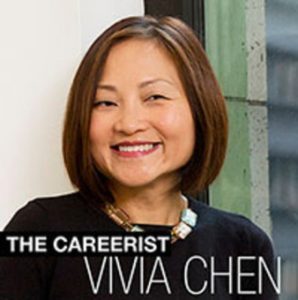Munger Tolles Did It. Why Can't You?
The firm has elected eight new partners, and 60 percent of them are women or lawyers of color.
January 07, 2019 at 02:50 PM
5 minute read
 Top row, from left: Zachary M. Briers, Jennifer M. Broder, Rose Leda Ehler, Jeremy A. Lawrence. Bottom row, from left: Laura K. Lin, Kuruvilla J. Olasa, Achyut J. Phadke, Justin P. Raphael.
Top row, from left: Zachary M. Briers, Jennifer M. Broder, Rose Leda Ehler, Jeremy A. Lawrence. Bottom row, from left: Laura K. Lin, Kuruvilla J. Olasa, Achyut J. Phadke, Justin P. Raphael.
If Paul, Weiss, Rifkind, Wharton & Garrison is arguably this year's winner of the Dinosaur Award for presenting one of the whitest, most male batch of new partners in Big Law (the firm elected 11 white men and one white woman), Munger, Tolles & Olson might be a top contender in the cool, woke category.
Munger has elected eight new partners, and 60 percent of them are women or lawyers of color. What's more, three of the new partners (Rose Leda Ehler, Laura Lin and Kuruvilla Olasa) took parental leave during the year they were up for partnership—and one of them is a male. The audacity!
Yes, it is 2019, so a diverse crop of new partners, including ones who took time off to bond with their newborns, shouldn't be news. Except, of course, it is.
So the big question: How did an uber-elite firm like Munger Tolles do it? Was this a fluke? And can other firms learn some tricks from the Munger playbook?
First, let's be perfectly clear that Munger is progressive—perhaps radically progressive. Transparency and democracy rules—meaning that even lowly junior associates can see the firm's financials and what everyone (including partners) are making. Plus, associates have voting rights on most matters (though not on partnership decisions). “We try to treat people like owners of the business,” says Sandra Seville Jones, Munger's co-managing partner. “If they want to change something, they have the power to do it. Sometimes it can be chaos with 200 people with different ideas, but that's the beauty of it.”
Sounds too socialist for your shop? Well, stay with me. There are some measures that even uptight, traditional firms can adopt from the Munger model that might help you retain talent and diversify your ranks.
Now, I usually zone out whenever a firm tells me it's “family-friendly” because it's such an overused, hollow term. That said, Munger does seem to take the concept a step further than most firms:
On-site daycare and early education center. This sounds positively European: Open 12 hours a day (7 a.m. to 7 p.m.), the award-winning center (O'Melveny & Meyers and Oaktree  Capital Management are also partners) serves infants and toddlers until they're ready to trot off to kindergarten. Rose Leda Ehler, one of Munger's new partners and the mother of a 9-month old, says. “This enables me to have the mental space to work,” adding, “My son loves it and we adore the staff.” Another goodie: Lawyers get 15 days of subsidized backup care.
Capital Management are also partners) serves infants and toddlers until they're ready to trot off to kindergarten. Rose Leda Ehler, one of Munger's new partners and the mother of a 9-month old, says. “This enables me to have the mental space to work,” adding, “My son loves it and we adore the staff.” Another goodie: Lawyers get 15 days of subsidized backup care.
Generous leave policy (that people use!). Primary caregivers get 18 weeks of fully paid leave after the birth or adoption of a child and non-primary caregivers get six weeks. Though there are other big firms with comparable policies, one difference is that lawyers who take them don't seem to pay a penalty. “It never occurred to me that this would pose a career problem—not for one minute,” says new partner Kuruvilla Olasa about his decision to take six weeks off after the birth of each of his two children. “When I was talking to senior lawyers at the firm back in 2010, male lawyers were taking leave then, too. There's a growing awareness that fathers should bond with their children too.”
Flexibility—not just once a week. It's right on the firm's website that it has “no face time requirement.” But that doesn't mean just working from home. “I wanted to go to India with my child where I grew up, and I worked from there for 12 days,” says Olasa. “People knew it was a priority for me. They trusted me to do my work.” (And to think that Weil, Gotshal & Manges made such a big fuss last fall about letting third-year and more senior associates work from home up to one day a week!)
Much harder to implement is the culture of the firm. “It's more about the attitude,” says new partner Lin, who came back to work two months ago from her second maternity leave. She says that the firm offers “lots of role models” who show that “it's possible to be an excellent lawyer and parent.” That attitude wasn't so typical of other firms, she says: “When I interviewed with New York firms, someone would say to me, 'And she's a mom'—like that's some kind of unicorn.”
So will the day come when firms will adopt more progressive attitudes? “The change in culture will be hard for some firms, because they're wired differently,” says Olasa. “But they will realize they will lose people if they can't be with their families. Firms can step up now or go there kicking and screaming.”
My prediction: Kicking and screaming—loads.
Contact Vivia Chen at [email protected]. On Twitter: @lawcareerist.
This content has been archived. It is available through our partners, LexisNexis® and Bloomberg Law.
To view this content, please continue to their sites.
Not a Lexis Subscriber?
Subscribe Now
Not a Bloomberg Law Subscriber?
Subscribe Now
NOT FOR REPRINT
© 2025 ALM Global, LLC, All Rights Reserved. Request academic re-use from www.copyright.com. All other uses, submit a request to [email protected]. For more information visit Asset & Logo Licensing.
You Might Like
View All
Change Is Coming With the New Trump Era. For Big Law, Change Is Already Here
6 minute read


Letter From London: 5 Predictions for Big Law in 2025, Plus 5 More Risky Ones
6 minute readTrending Stories
Who Got The Work
J. Brugh Lower of Gibbons has entered an appearance for industrial equipment supplier Devco Corporation in a pending trademark infringement lawsuit. The suit, accusing the defendant of selling knock-off Graco products, was filed Dec. 18 in New Jersey District Court by Rivkin Radler on behalf of Graco Inc. and Graco Minnesota. The case, assigned to U.S. District Judge Zahid N. Quraishi, is 3:24-cv-11294, Graco Inc. et al v. Devco Corporation.
Who Got The Work
Rebecca Maller-Stein and Kent A. Yalowitz of Arnold & Porter Kaye Scholer have entered their appearances for Hanaco Venture Capital and its executives, Lior Prosor and David Frankel, in a pending securities lawsuit. The action, filed on Dec. 24 in New York Southern District Court by Zell, Aron & Co. on behalf of Goldeneye Advisors, accuses the defendants of negligently and fraudulently managing the plaintiff's $1 million investment. The case, assigned to U.S. District Judge Vernon S. Broderick, is 1:24-cv-09918, Goldeneye Advisors, LLC v. Hanaco Venture Capital, Ltd. et al.
Who Got The Work
Attorneys from A&O Shearman has stepped in as defense counsel for Toronto-Dominion Bank and other defendants in a pending securities class action. The suit, filed Dec. 11 in New York Southern District Court by Bleichmar Fonti & Auld, accuses the defendants of concealing the bank's 'pervasive' deficiencies in regards to its compliance with the Bank Secrecy Act and the quality of its anti-money laundering controls. The case, assigned to U.S. District Judge Arun Subramanian, is 1:24-cv-09445, Gonzalez v. The Toronto-Dominion Bank et al.
Who Got The Work
Crown Castle International, a Pennsylvania company providing shared communications infrastructure, has turned to Luke D. Wolf of Gordon Rees Scully Mansukhani to fend off a pending breach-of-contract lawsuit. The court action, filed Nov. 25 in Michigan Eastern District Court by Hooper Hathaway PC on behalf of The Town Residences LLC, accuses Crown Castle of failing to transfer approximately $30,000 in utility payments from T-Mobile in breach of a roof-top lease and assignment agreement. The case, assigned to U.S. District Judge Susan K. Declercq, is 2:24-cv-13131, The Town Residences LLC v. T-Mobile US, Inc. et al.
Who Got The Work
Wilfred P. Coronato and Daniel M. Schwartz of McCarter & English have stepped in as defense counsel to Electrolux Home Products Inc. in a pending product liability lawsuit. The court action, filed Nov. 26 in New York Eastern District Court by Poulos Lopiccolo PC and Nagel Rice LLP on behalf of David Stern, alleges that the defendant's refrigerators’ drawers and shelving repeatedly break and fall apart within months after purchase. The case, assigned to U.S. District Judge Joan M. Azrack, is 2:24-cv-08204, Stern v. Electrolux Home Products, Inc.
Featured Firms
Law Offices of Gary Martin Hays & Associates, P.C.
(470) 294-1674
Law Offices of Mark E. Salomone
(857) 444-6468
Smith & Hassler
(713) 739-1250










